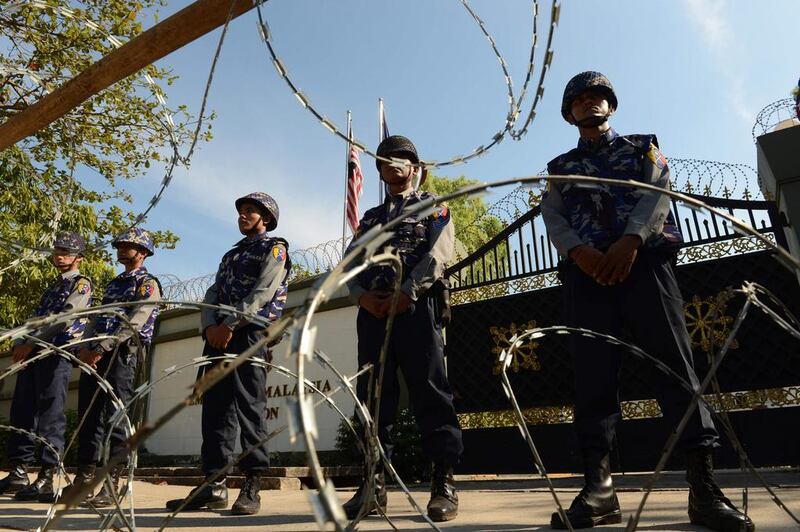Maungdaw, Myanmar // Malaysia on Saturday accused Myanmar of carrying out “ethnic cleansing” against the Muslim Rohingya minority as former UN chief Kofi Annan visited a burnt out village in strife-torn Rakhine state.
Tens of thousands of Rohingya have fled a bloody crackdown by the Myanmar army in the western state that was sparked by a string of deadly attacks on police border posts in early October.
Myanmar says the Rakhine crisis is an internal issue, but international pressure on the country is mounting.
“The fact that only one particular ethnicity is being driven out is by definition ethnic cleansing,” Malaysia’s foreign ministry said.
Hundreds of thousands of Rohingya have fled Myanmar to neighbouring countries in recent years, including about 56,000 to Muslim-majority Malaysia, which “makes this matter no longer an internal matter but an international matter”, the ministry said.
On Saturday morning a convoy carrying Mr Annan arrived at the Rohingya village of Wapeik, which has suffered significant damage from fire.
Police stopped journalists who were not from state media from approaching the convoy or entering the village.
Mr Annan is not expected to brief the media until Tuesday, after his visit to Rakhine ends.
Myanmar has restricted access to the northern part of the state and says its military is hunting down the militants behind the attacks.
But rights groups and Rohingya who have fled to Bangladesh have accused the military of killing civilians, rape and razing entire villages as a form of collective punishment.
The Rohingya have long faced persecution and government restrictions on movement that many have likened to apartheid.
Much of Myanmar views the Rohingya as illegal immigrants from Bangladesh even though many have lived there for generations.
“The Bengali people who brand themselves Rohingya are not Myanmar citizens,” Parmaukkha, a nationalist monk, told a small group of supporters protesting outside Malaysia’s embassy in Yangon on Saturday afternoon.
“The one who is encouraging terrorism is the Malaysian prime minister, he is also a terrorist,” he said.
Before the latest violence broke out, Myanmar’s de facto civilian leader Aung San Suu Kyi formed a commission headed by Mr Annan to solve the Rakhine crisis.
That task has been made considerably harder since fighting broke out.
Ms Suu Kyi has been criticised for not defending the Rohingya. Since her party won elections last year, the Nobel Peace Prize winner has hardly spoken out on the issue.
But during a trip to Singapore this week she gave a rare interview in which she hit out at international criticism.
“I would appreciate it so much if the international community would help us to maintain peace and stability, and to make progress in building better relations between the two communities, instead of always drumming up cause for bigger fires of resentment,” Ms Suu Kyi told Channel News Asia.
Her hands are somewhat tied by Myanmar’s notoriously abusive military.
Under the country’s junta-era constitution, the army still controls key ministries and has a parliamentary veto.
* Agence France-Presse





